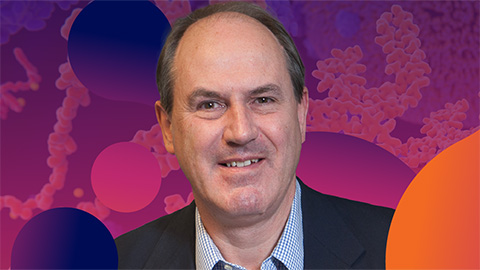Academic jobs in the field of microbiology
Recently I’ve been intrigued by the variety of research opportunities focusing on the microbiology of the great outdoors and all the ways it interacts with complex life forms. So this week, I’m focusing on academic jobs available to study microbiology, the microbiome of the soil and water, and the symbiotic and pathogenic interactions of the microbiome with humans, plants, and animals. Positions in this field are often filled by candidates with degrees in fields like ecology and plant pathology, but expertise in molecular biology is applicable as well. Many of these research positions, while in academia, would produce data that has direct applications in agriculture and crop production as well as human disease.
Oklahoma State is looking to hire a tenure-track assistant professor to study plant–microbe interactions. OSU is considering all candidates with expertise in plant–microbe interactions but will favor those with plans to take a systems biology approach to understand plant disease-resistance mechanisms or the beneficial effects of plant–microbe interaction. The duties will be 75% research and 25% teaching. This position requires a Ph.D. and at least two years of postdoctoral training. Applications will begin to be reviewed on Dec 1.
Penn State is looking to hire a tenure-track assistant professor of plant pathology and environmental microbiology to study detection and prevention of soilborne diseases. This professor will be expected to set up a research program to study soil and analyze it for pathogens, from bacteria to nematodes. The job will be 75% research and 25% teaching. A Ph.D. in the plant pathology, soil ecology, microbiology or a related field is required. Applications will be accepted until the position is filled.
If you’re looking for a research position with a bigger teaching role, Austin-Peay State University is looking to hire a tenure-track assistant professor of microbiology. The scientist hired would be encouraged to focus on human/animal/plant microbial diseases, microbial symbioses with animals and plants/microbiomes or environmental microbiology. This assistant professor will teach two lecture courses and two lab courses per semester. A Ph.D. in biology, microbiology or a closely related field is required, but applicants finishing their dissertations (called ABD) will be considered if the degree will be awarded by the position start date. Open until filled.
For new Ph.D.s, North Carolina State University is hiring a postdoc to study the microbiome of fish eggs and skin within the context of both stock management and ecology. A Ph.D. or equivalent doctorate (e.g., M.D., D.V.M., Sc.D.) in an appropriate field (awarded no more than five years ago) is required.
Enjoy reading ASBMB Today?
Become a member to receive the print edition four times a year and the digital edition monthly.
Learn moreFeatured jobs
from the ASBMB career center
Get the latest from ASBMB Today
Enter your email address, and we’ll send you a weekly email with recent articles, interviews and more.
Latest in Careers
Careers highlights or most popular articles

Upcoming opportunities
ASBMB's PROLAB award helps graduate students and postdoctoral fellows spend up to six months in U.S. or Canadian labs.

From humble beginnings to unlocking lysosomal secrets
Monther Abu–Remaileh will receive the ASBMB’s 2026 Walter A. Shaw Young Investigator Award in Lipid Research at the ASBMB Annual Meeting, March 7-10 in Washington, D.C.

Chemistry meets biology to thwart parasites
Margaret Phillips will receive the Alice and C. C. Wang Award in Molecular Parasitology at the ASBMB Annual Meeting, March 7-10 in Washington, D.C.

Decoding how bacteria flip host’s molecular switches
Kim Orth will receive the Earl and Thressa Stadtman Distinguished Scientists Award at the ASBMB Annual Meeting, March 7–10, just outside of Washington, D.C.

Defining JNKs: Targets for drug discovery
Roger Davis will receive the Bert and Natalie Vallee Award in Biomedical Science at the ASBMB Annual Meeting, March 7–10, just outside of Washington, D.C.

Upcoming opportunities
No matter where you are in your career and what future path you aspire to, everyone needs leadership skills. Join ASBMB for practical strategies for building and practicing leadership skills.


